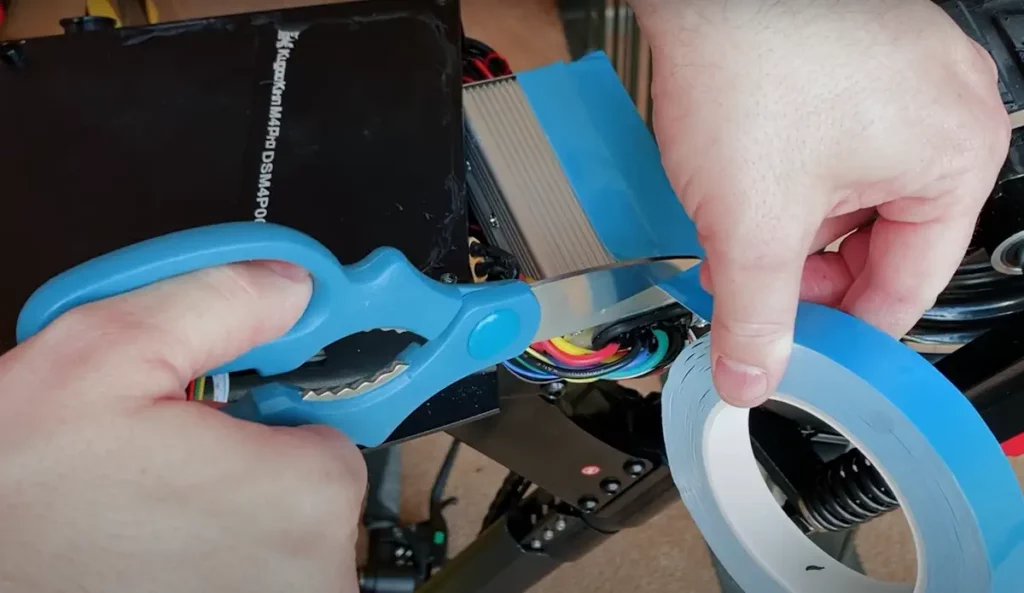This is the complete electric scooter legal guide. I will cover all the known laws and regulations concerning electric scooters, for USA, UK, Ireland, Canada and Australia.
Disclaimer note: This article isn’t a substitute for legal advice. Conduct more thorough research since we can’t assure the information’s accuracy and timeliness. Always consult your local authorities to be sure.
Electric scooter laws in the US vary by state, covering usage locations, speed limits, and age restrictions. Enforcement and specific regulations for more powerful scooters vary, but in unregulated states, electric scooters are generally road-legal. The default speed limit is 20 mph, and most states have no age requirement or set a minimum age of 16.

Electric scooter laws in the US
Electric scooter laws and regulations in the US vary by state. They cover where scooters can be used, speed limits, age restrictions, and requirements for licenses, registration, insurance, and helmets.
The table below provides state-specific electric scooter laws. For unspecified values, you can assume the general US defaults: 15 mph speed limit, road legality, possible sidewalk restrictions, no license, registration, or insurance requirements, and likely no age restrictions (although cross-referencing with local authorities is recommended).
| State | Allowed on | Not allowed on | Speed limit | Registration | License? | Insurance | Helmet | Min. age |
|---|---|---|---|---|---|---|---|---|
| USA (national level) | road | sidewalks sometimes | 20 mph | usually no | usually no | mostly no | maybe if under 16 or 18 | none/16 |
| Alabama | road | sidewalks | DMV registration | motorcycle license | 16 | |||
| Alaska | yes | |||||||
| Arizona | road, bike lane | highways | 20 mph | no | no | no | ||
| Arkansas | 15 mph | no | no | no | 16 | |||
| California | more than 15 mph on any bike lane or public road | 15 mph | no | yes | yes | |||
| Colorado | 20 mph | |||||||
| Connecticut | 20 mph | if you’re 16 or younger | 16 | |||||
| Delaware | private property | road, highway, sidewalk | ||||||
| Florida | 30 mph | no | no | if you’re under 16 | 16 | |||
| Georgia | bike lanes, public streets limited to 35 mph | 35 mph | ||||||
| Hawaii | bike paths, roadways, sidewalks | 15 mph | if you’re under 16 | |||||
| Idaho | roadways, sidewalks | |||||||
| Illinois | road | DMV registration | yes | yes | ||||
| Indiana | streets, bike paths | no | ||||||
| Iowa | streets with speed limits of 35 mph | 35 mph | no | no | ||||
| Kansas | road | highways, sidewalks | driver’s license | 16 | ||||
| Kentucky | public streets | no | no | no | ||||
| Louisiana | bike lanes, sidewalks, 25 mph roads | 25 mph | yes | yes | ||||
| Maine | road, furthest right lane | 20 mph | yes | |||||
| Maryland | road | 20 mph | ||||||
| Massachusetts | public streets | 20 mph | yes | if under 16 | ||||
| Michigan | roads up to 25 mph, furthest right lane | 25 mph | yes | 12 | ||||
| Minnesota | bike paths | sidewalks | 15 mph | no | no | 12 | ||
| Mississippi | road, bike lane | sidewalks | if under 16 | 14 | ||||
| Missouri | bike lane if available, street otherwise | sidewalks | 30 mph | yes | ||||
| Montana | road, bike paths | sidewalks | ||||||
| Nebraska | bike lane if available, street otherwise | public places, sidewalks | no | |||||
| Nevada | public streets | 20 mph | 16 | |||||
| New Hampshire | bike lane if available, street otherwise | public places, sidewalks | ||||||
| New Jersey | bike lane | 19 mph | no | no | no | |||
| New Mexico | bike lane, furthest right side of road | 15 mph | if you’re under 18 | |||||
| New York | sidewalks | 30 mph | if you’re under 16 | |||||
| North Carolina | roads limited to 25 mph | DMV registration | yes | 16 | ||||
| North Dakota | road | sidewalks, bike paths | if you’re under 18 | |||||
| Ohio | road, bike lane | 20 mph | no | no | ||||
| Oklahoma | sidewalks | if you’re under 18 | ||||||
| Oregon | road, bike lanes | sidewalks, parks | 24 mph | yes | 16 | |||
| Pennsylvania | ||||||||
| Rhode Island | road, sidewalks | driver’s license or municipal ID | 16 | |||||
| South Carolina | road | yes | ||||||
| South Dakota | road | sidewalks, highways | if under 18 | |||||
| Tennessee | furthest right lane, close to sidewalk | sidewalks (unless bikes are allowed too) | 20 mph | yes | 16 | |||
| Texas | roads up to 35 mph | if over 750W | if over 750W | if over 750W | ||||
| Utah | roads up to 25 mph | sidewalks | 15 mph | no | 8 or 15 | |||
| Vermont | road | sidewalks | 15 mph | |||||
| Virginia | sidewalks | highways | 20 mph | 16 | ||||
| Washington | roads up to 35 mph | sidewalks, bike lanes, public walkways | 15 mph | |||||
| West Virginia | DMV registration | yes | ||||||
| Wisconsin | yes | sidewalks | 20 mph | no | no | |||
| Wyoming | 25 mph | no | no |
Are electric scooters street legal in the US?
In general, electric scooters that are operated while standing, have a maximum top speed of 20 mph, and an electric motor of 750 Watts or less, will be considered street legal in every state in the US (source: govinfo.gov).
The legal situation can differ in specific states, but in the absence of conflicting laws, this will be the standard.
The status of scooters exceeding 20 mph or 750 W motors isn’t clearly defined. Many widely used scooters may not meet street legal criteria. Given the presence of more powerful scooters that exceed these regulations, it’s reasonable to assume that the laws, while clear, may not be rigorously enforced at this time.
In some states, scooters with greater power are simply registered as vehicles with the DMV.
Where to ride an electric scooter in the US?
In unregulated states, electric scooters are typically road-legal. The majority of regulated states also permit electric scooters on roads, often with speed limits of 25 mph or 35 mph. Delaware stands as the sole exception, where electric scooters are not considered street legal and are restricted to use on private property.
What is the speed limit for electric scooters in the US?
The default speed limit for electric scooters in the US is 20 mph, unless it’s specified otherwise at the state level.
What is the age requirement for electric scooters in the US?
Most states have no age requirement for electric scooter use. The ones that do, usually have a minimum age requirement of 16.
Electric scooter laws in the UK
Up until a while ago, the UK had in place one of the most infamous bans on electric scooters. The law used to ban them was the old 1835 Highway law that mentions horses and carts.
Anyway, in July 2020, the UK ban on electric scooters was lifted, or so it seemed. Turns out, the ban was only lifted for ride-sharing scooters in the UK.
Right now, you can find rental e-scooters in approximately 23 towns and cities throughout England, thanks to government trials. It’s crucial to remember that using your personal e-scooter on public roads is against the law.
Through these e-scooter trials, the government tends to gain a deeper understanding of the advantages of well-regulated, safety-tested e-scooters and how they affect public spaces.
However, since the trials have been extended to 2024, the legal status of electric scooters in the UK is still questionable.
Are electric scooters street legal in the UK?
Electric scooters are permitted on UK roads, but only when they are part of ride-sharing services. Riding privately-owned scooters on public roads remains illegal, and they are restricted to use on private property.
However, it’s important to note that owning a scooter is not illegal in the UK.
Many people do ride their private scooters on public roads – although, if you choose to ride your personal scooter on public roads, in a bicycle lane, or any other public area, you risk facing a £300 fine and receiving six points on your driver’s license.
Where can I ride an electric scooter in the UK?
Electric scooters rented through ride-sharing companies can be ridden on public roads in the designated zones where they are available. Right now, privately owned electric scooters can only be ridden on private grounds in the UK.
Can I ride an electric scooter in the bicycle lane in the UK?
As long as you are riding a trial electric scooter, you can ride in the bike lane. You can’t ride your own scooter on public roads, which includes bike lanes as well.
What is the speed limit for electric scooters in the UK?
Electric scooters in the UK must not go faster than 25 kmh.
What is the age requirement for electric scooters in the UK?
The minimum age for riding an electric scooter in the UK is 16.
Do I need to wear a helmet to ride an electric scooter in the UK?
Helmets are obligatory for riding an electric scooter in the UK. Riding without a helmet may result in a fine.
Do I need to register my electric scooter in the UK?
While citizens can own an electric scooter, they legally can’t ride it on public roads. Therefore, registration is not possible, nor necessary.
Do I need a license to ride an electric scooter in the UK?
You will need a driver’s license to ride an electric scooter in the UK. This is true for ride-sharing scooters right now, and it will likely be true for private scooters if they become street legal in the future.
Do I need insurance for an electric scooter in the UK?
Since the only street legal scooters in the UK right now are ride-sharing scooters, you will not need insurance to ride them, as they are already insured by the companies.
Electric scooter laws in Ireland
Ireland did not have any specific laws regarding electric scooters until the Road Traffic and Roads Act 2023 bill was presented and signed in June this year.
Under this new legislation, electric scooters will be regarded as powered personal transporters (PPTs) and will not require registration, motor tax, insurance or a driving license to use on Irish roads.
However, keep in mind that e-scooters will stay prohibited on public roads until regulations are established.
This is expected by the end of this year, as EU law mandates notifying the European Commission for review of the technical e-scooter regulations.
Electric scooter laws in Canada
Electric scooters in Canada are covered by various laws, and almost every detail will vary from province to province.
Electric scooter laws in Ontario
Ontario is currently running a pilot program to decide where and how electric scooters can be used. They’re only allowed in municipalities that permit them.
- street legal: yes, separate + bicycle laws, max 500 Watt motor
- where can you ride: roads and streets
- where can you not ride: highways
- can you ride in the bicycle lane: yes
- can you ride on the sidewalk: /
- speed limit: 24 kmh
- age requirement: 16+
- helmet required: yes if under 18
- registration required: no
- license required: no (ID needed)
- insurance required: no
- source: Ontario Ministry of Transportation
Electric scooter laws in British Columbia
- using an electric scooter on a road or highway is prohibited in any community not involved in the pilot project.
- where can you ride: trails, pathways, parade routes, private property
- source: icbc.com
Electric scooter laws in Quebec
- street legal: yes, max 500 Watt motor
- where can you ride: on roads where the speed limit is less than 50 kmh
- speed limit: 32 kmh
- age requirement: 18+
- helmet required: yes
- registration required: yes
- license required: yes (training required)
- insurance required: no
- source: saaq.gouv.qc.ca
Electric scooter laws in Alberta
- street legal: only rented e-scooters
- where can you ride: trails, pathways, private property, possibly bike lanes and sidewalks and roads under 50 kmh
- can you ride in the bicycle lane: in some municipalities
- can you ride on the sidewalk: in some municipalities
- speed limit: unknown / 50 kmh
- source: alberta.ca
Are electric scooters street legal in Canada?
Electric scooters are street legal in some Canadian provinces, including Ontario and Quebec.
Where to ride an electric scooter in Canada?
In the provinces that allow electric scooter use on public roads, riding them on public roads and streets will be allowed. Bike lanes will often be allowed as well, but sidewalks will often not be.
What is the speed limit for electric scooters in Canada?
In Canada, electric scooter speed limits vary from province to province. Most notably, the speed limit in Ontario is 24 kmh, and 32 kmh in Quebec.
What is the age requirement for electric scooters in Canada?
If a province allows electric scooters to be used on public roads in Canada, the age requirement will be either 16 or 18.
Do I need to wear a helmet to ride an electric scooter in Canada?
In the provinces where electric scooters are road legal, wearing a helmet is either required, or strongly recommended.
Do I need to register my electric scooter in Canada?
Electric scooters don’t need to be registered in Canada, except in the province of Quebec.
Do I need a license to ride an electric scooter in Canada?
Of the provinces that allow electric scooters, only Quebec requires electric scooter riders to have a license for it. The license is actually a certificate obtained after special training for electric scooter use.
Do I need insurance for an electric scooter in Canada?
Generally, insurance is not required for electric scooter use in the Canadian provinces that allow electric scooter use on public roads.
Electric scooter laws in Australia
In Australia, electric scooter laws differ by state or territory.
You can use electric scooters outside of private properties in Queensland, Victoria, Western Australia, Tasmania, and the Australian Capital Territory.
The typical top speed limit is 15 kmh, except in Queensland, where it’s 25 kmh.
Helmets are mandatory in every state, while licenses, registration, and insurance are generally not required.
Electric scooter laws in Queensland
- street legal: yes
- where can you ride: paths, streets, roads (limited use), far left side of the road
- where can you not ride: main roads or streets in the Brisbane CBD
- can you ride in the bicycle lane: yes
- can you ride on the sidewalk: only if necessary
- speed limit: 25 kmh
- age requirement: 16+ (12+ with adult supervision)
- helmet required: yes
- registration required: no
- license required: no
- insurance required: no
- source: Queensland Government
Electric scooter laws in New South Wales
- street legal: no
- where can you ride: private property
- source: astorlegal.com.au
Electric scooter laws in Victoria
- street legal: on some roads, if up to 200 W
- where can you ride: shared roads, paths, roads up to 50 kmh, private property
- can you ride in the bicycle lane: yes
- speed limit: 10 kmh
- helmet required: yes
- registration required: no
- license required: yes
- source: Victoria Government
Electric scooter laws in South Australia
- street legal: no
- where can you ride: private property
- source: South Australia Government
Electric scooter laws in Western Australia
- street legal: yes, if under 200 W
- where can you ride: roads up to 50 kmh, footpaths and shared paths
- can you ride in the bicycle lane: yes
- speed limit: 10 kmh
- helmet required: yes
- registration required: no
- license required: no
- insurance required: no
- source: Western Australia Government
Electric scooter laws in Tasmania
- street legal: yes, if under 200 W
- where can you ride: roads up to 50 kmh, paths
- where can you not ride: areas that forbid electric scooters
- speed limit: 10 kmh
- age requirement: none
- helmet required: yes
- registration required: no
- license required: no
- insurance required: no
- source: Tasmania Government
Electric scooter laws in Australian Capital Territory
- street legal: yes
- where can you ride: footpaths, shared paths, bicycle paths and the bicycle side of separated paths
- can you ride in the bicycle lane: yes
- can you ride on the sidewalk: if necessary
- speed limit: 10 kmh / 15 kmh / 25 kmh, depending on the type of path
- age requirement: 12+
- helmet required: yes
- registration required: no
- license required: no
- insurance required: no
- source: ACT Government
Electric scooter legality
In some countries or places, electric scooter regulations may be absent or incomplete.
When something remains unregulated, it often means fewer restrictions for users, which is generally positive.
In cases where electric scooters lack specific regulations, they might be subject to similar laws, such as those governing bicycles or motorcycles.
If your country or city has not established electric scooter regulations, you may have considerable freedom in how you use your scooter, provided you act reasonably, responsibly, and exercise common sense.
Examples of that would be:
- respecting traffic laws
- riding in the bike lane or near the side of the road
- maybe occasionally riding on the sidewalk, when it’s the only option available
- parking so that you don’t obstruct sidewalk movement and traffic.
Electric scooter bans

In a few locations, electric scooter use is completely prohibited, although these instances are quite uncommon. However, where such bans exist, they are the most significant drawback to scooter ownership, making it an unwise choice.
These bans are typically a response to issues like reckless shared scooter parking or serious accidents. Often, these bans are later reconsidered, leading to the introduction of more balanced laws that permit responsible scooter use.
Are electric scooters street-legal?
In most places, most electric scooter models are street-legal. They will either have specific laws for them, or rely on bicycle laws, motorcycle laws, or standard traffic laws for vehicles. Generally, in places where electric scooter use is still unregulated, they can be ridden on streets and roads.
What does it mean for an electric scooter to be street legal?
In some areas, electric scooters are categorized as motor vehicles, subject to motor vehicle requirements, including strong head and tail lights, reliable brakes, loud sound signals, and other criteria that not all scooters meet. In other cases, scooters may need speed or motor power limitations to be street legal.
The term “street legal” has historically been somewhat ambiguous when applied to electric scooters. It typically refers to the compliance of vehicles with road regulations. Electric scooters were often not initially classified as vehicles, more akin to bicycles. However, as they’ve gained more power and popularity, the public has come to view electric scooters as full-fledged vehicles and considers them more seriously for road use.
How to make an electric scooter street legal?
If electric scooters are typically street legal in your area, but your specific model isn’t, you have options to rectify this. In some instances, you might need to acquire extra equipment, such as brighter lights, a louder horn, or more robust brakes.
Alternatively, if your scooter is too powerful, consider solutions like custom firmware to restrict its top speed and motor power.
What is the age requirement for electric scooters?
In most regulated electric scooter areas, there’s either no age requirement or it’s typically set at 16 or 18. In areas where a driver’s license is mandatory for scooter riding, the age requirement aligns with the legal driving age.
Do I need to register my electric scooter?
Very few places in the world require electric scooters to be registered, most notably a few states in the US (Illinois, North Carolina and West Virginia), the province of Quebec in Canada, and the Philippines.
Do I need a license for an electric scooter?
The vast majority of places don’t require a license for riding an electric scooter. Notable exceptions include the UK, Ireland, some US states (Kansas, Rhode Island, Michigan, South Carolina and Tennessee), the province of Quebec in Canada, the state of Victoria in Australia and the Philippines).
Do I need insurance for my electric scooter?
Almost no places in the world where electric scooters are street legal require them to be insured. The only places that require insurance for electric scooters are the state of Illinois, and Texas for e-scooters that possess over 750 watts of power.
Do I need to wear a helmet when riding an electric scooter?

Wearing a helmet when riding an electric scooter can be required in some places, required until a certain age in others, and not required at all. No matter what the requirements are, it is always strongly recommended to wear a helmet at all times.
Check out the guide on electric scooter helmets to find one that will fit your scooter and your context.







